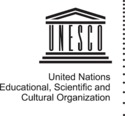Applications are invited for 35 UNESCO/POLAND Co-Sponsored Research Fellowships for applicants from Africa, Asia and the Pacific, Europe, Latin America and Caribbean. Fellowships will be given to undertake an individual research programme in the field of Science, Technology and Engineering.
The fellowships are offered with a view to promoting human resource capacities in the developing countries and to enhancing international understanding and friendship among nations and the people of Poland.
Since its creation UNESCO's mission has been to contribute to the building of peace, poverty eradication, lasting development and intercultural dialogue, with education as one of its principal activities to achieve this aim.
Applicants must hold the Bachelor's or M.Sc. degrees. Applicants from outside the home country will often need to meet specific English language/other language requirements in order to be able to study there.
Study Subject(s): Fellowships are awarded in the field of Science, Technology and Engineering.
List of Subjects: Drilling Engineering, Geophysics or Physics, Decision Engineering, Automation in Mining Devices, Mining devices, Transport Engineering, Manufacturing Transport Engineering, Sensor Engineering, Economic Sociology and Economics, Foundry Engineering, Foundry Engineering, Geology, Computer Vision, Materials Science, Nanotechnology, Composite Materials, Computer Vision, Geology and Mining, Gas Engineering and Geoturism
Course Level: These fellowships will be given the opportunity to undertake an individual research programme
Scholarship Award: –
Facilities offered by Polish Authorities
(i) Free tuition and access to the university facilities based on the local regulations.
Accommodation at the AGH UST Student Campus organised for fellows by the UNESCO AGH Chair.
(ii) Monthly allowance of 1350 PLN (1 USD = approximately 3.9 PLN) corresponding to the salary of a local junior research fellow. Thus, all living expenses and accommodation in Poland are to be borne by the fellow with this allowance; and;
(iii) A one especial allowance of 1350 PLN to be paid upon arrival in Poland, this sum will cover different activities related to your stay in Krakow, such as an obligatory medical check-up upon arrival (in accordance with the internal regulations for all students); cultural, historical and/or touristic visits, conferences, workshops, and seminars related to your studies.
No provision to finance or lodge family members is made.
At the end of the research studies, the beneficiaries will receive a certificate attesting to their attendance at the host institution, this certificate will be given after receipt of the requested reports and financial clearance from the Institution.
Facilities offered by UNESCO
(i) International travel expenses: (by the most direct, economical route) from the beneficiary's country to and from Poland will be covered by UNESCO under its Regular Programme Budget.
(ii) Health insurance for fellowship beneficiaries who are declared medically fit: UNESCO fellowship holders may be covered by a health insurance policy, taken-out by the Organization for the duration of fellowship. The costs of this health insurance is subscribed to and covered by UNESCO on behalf of awarded fellows.
Scholarship can be taken at: Poland
Eligibility:
- Hold the Bachelor's or M.Sc. degrees;
- Be proficient in reading and writing English;
- Be a member of Africa, Asia and the Pacific, Latin America and the Caribbean.
Scholarship Open for International Students: Students from Africa, Asia and the Pacific, Europe, Latin America and Caribbean can apply for these UNESCO fellowships.
List of Countries: Africa (Angola, Benin, Botswana, Burkina Faso, Burundi, Cameroon, Cape Verde, Central African Republic, Chad, Comoros, Congo, Côte d'Ivoire, Democratic Republic of the Congo, Djibouti, Equatorial Guinea, Eritrea, Ethiopia, Gabon, Gambia, Ghana, Guinea, Guinea-Bissau, Kenya, Lesotho, Liberia, Madagascar, Malawi, Mali, Mauritius, Mozambique, Namibia, Niger, Nigeria, Rwanda, Sao Tome and Principe, Senegal, Seychelles, Sierra Leone, Somalia, South Africa, Swaziland, Togo, Uganda, United Republic of Tanzania, Zambia, Zimbabwe) Asia and the Pacific ( Afghanistan, Bangladesh, Bhutan, Brunei Darussalam, Cambodia, China, Fiji, India, Indonesia, Kazakhstan, Kiribati, Kyrgyzstan, Lao People's Democratic Republic, Malaysia, Maldives, Mongolia, Myanmar, Nauru, Nepal, Niue, Pakistan, Palau, Papua New Guinea, Philippines, Samoa, Sri Lanka, Tajikistan, Thailand, Timor-Leste, Tonga, Turkmenistan, Tuvalu, Uzbekistan, Vanuatu and Viet Nam)Europe (Armenia, Azerbaijan, Bosnia and Herzegovina, Croatia, Georgia, Republic of Moldova, The former Yugoslav Republic of Macedonia, Turkey and Ukraine) Latin America and Caribbean (Argentina, Barbados, Belize, Bolivia (Plurinational State of), Brazil, Chile, Colombia, Costa Rica, Cuba, Dominica, Dominican Republic, Ecuador, El Salvador, Grenada, Guatemala, Guyana, Haiti, Honduras, Jamaica, Mexico, Nicaragua, Panama, Paraguay, Peru, Saint Kitts and Nevis, Saint Lucia, Saint Vincent and the Grenadines, Suriname, Trinidad and Tobago, Uruguay and Venezuela(Bolivarian Republic of)
College Admission Requirement
Entrance Requirement: Applicants must hold the Bachelor's or M.Sc. degrees.
Test Requirement: No
English Language Requirements: Applicants from outside the home country will often need to meet specific English language/other language requirements in order to be able to study there.
Supporting Material: Required documents are:
- UNESCO fellowships application forms, all four (4) pages duly completed in English using capital letter (illegible documents will be eliminated from the procedure, hand writing form must include capital letter only);
- Two photographs attached to the applications (4×6 cm);
- Certified copies (in English) of Bachelor's or Master's Degree obtained; and,
- UNESCO certificate of language knowledge, duly completed by a relevant authority, if the mother tongue of the candidate is not English.
- Two letters of recommendation from someone related to the candidate's work, as well confirming the candidate's qualifications.
How to Apply: Candidatures should be submitted by the invited Member State.Original applications in duplicate must be channelled through the National Commission for UNESCO of the candidate's country and communicated to Mr Stoyan Bantchev, Chief, Participation programme and Fellowships Section, by 30 April 2016 at the latest (GMT +01:00) to UNESCO mailing address.
Application Deadline: The application deadline is 30 April 2016.
